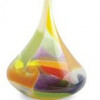Do you prefer science or history?
This is a bit like asking: 'Do you prefer life to death?'
Science is knowledge and so is history, of a different nature. Whereas my Hubs tend to be largely historic in content, I wouldn't preclude scienctific knowledge. We use science to discover the past, in carbon-dating artefacts from hundreds of thousands of years back to hundreds of years. We also use science to establish identity, such as genealogy and DNA testing to find out whether relics or remains are what archaeologists say they may be.
Postholes in the ground can be verified by evidence of burning in the earth, and ships like Henry VIII's 'Mary Rose' have been pieced together with the aid of tools normally used to build on riverbeds. Roman and Greek civil or military engineering has been unearthed in Europe and North Africa, remains of Pompeii extracted from the coagulated ash rained down by Vesuvius with the aid of modern engineering developed in science. Modern machinery is different from its predecessors only by advances in technology, the physics are in the laws of nature.
Since the apple fell on Isaac Newton science and history are interlinked.I would say since well before Newton. I think of prehistory as having so much to do with science, though the science is not written down. I think of cave dwellers, hunter-gatherers and so on, learning to make fire, different hunting techniques etc.
Thanks so much for your excellent answer. It is appreciated. I encourage everyone to read it!
That would entirely depend upon the type of science in question. Biology? Chemistry? With both of these, history would win. But with behavioral sciences? History would lose.
Just like alancaster said, there are too closely interlinked that it is hard to choose one or another:) Sciene and history are both the main ground stone on which our civilization and everything we know and believe in, stand:)
I think it takes an understanding of history to fully understand science and an understanding of science to fully understand history. History is affected by scientific development just as scientific development has a history and this crosses over into so many fields.
Modern architects consider underfloor heating to be something relatively new but ancient Romans used an underfloor heating system in all their posh houses.Same here. The two subjects are not, and indeed cannot be, mutually exclusive. To understand science you must have a good knowledge of how developments, theories, discoveries and practices came to be; you must understand the path your discipline has taken to be able to take it forward.
And likewise, you cannot read history without hitting on science at some point - the written past is awash with scientific discoveries, affecting every aspect of life, the progress of civilisations, war, health, economics, the arts, the day to day life of every human who has ever lived from the lowest in society to the highest in every land. Every topic of history you may care to look at will have some involvement with science - humans are scientists, it's the way they process the information their brains receive about the world, whether they know it or not.Leonardo da Vinci was probably scientifically minded, envisaging mechanically assisted flight and other technical developments. His outlook on art was more scientific than, say, Durer or Michelangelo, although these artists used realism in their work
I agree the two must work together in our progress across time.
I like to see how science, innovations and inventions have intersected history and change the course...some for good, some not. A really interesting show that played "connect the dots" with this in mind was "Connections" and "Connections II" with James Burke.
I remember that programme. Don't know what happened to Mr Burke, though. It was good while it lasted, but maybe it was a bit above some viewers if it was taken off the air because of falling ratings.
I am about 50/50 on this one. I love science and theory but history has always been a big part of my life.
- Kieran Gracieposted 13 years ago
0
As others have already commented, the two disciplines are inter-twined and are merely two aspects of life's rich pattern. When I was at school my history teachers were obsessed with dates (the date of the Treaty of ... or the date of King So-and-so ascending his throne, etc), and also a very narrow band of history - in my case it was the Tudor kings of England to the exclusion of most other history. Science, on the other hand, was exciting because I already knew that I wanted to become an engineer. So, science 1, History 0.
Later I discovered the almost bottomless pit of historical knowledge. In whatever direction I traveled there was more history than I could ever encompass. I found, and still find, this totally fascinating. But, as I climbed the engineering ladder and became more and more management oriented, I found that I was forgetting most of the science that I had learned.
Now I am still interested in science but much prefer history.This is a very interesting answer. Thank you for taking time to share and to point out your life experience. It may be that a few readers of your response will consider history more interesting and important.
I would have to choose history over science – as an interest. Many think history is about events but I look at as being about people, their situations and actions trough time. I see science as more about the processes of life. That is also interesting but for me, history trumps it.
When we look at events in our past certainly it helps us to better understand and make choices for our present. I like the idea of choices for our future which certainly involve some science too.
I enjoy and prefer learning about science. I learn about history in school but when given the choice, I choose more science.
Trouble with the way 'subjects' are dealt with in education many can't figure a link between, say, geography and history or science. In itself English Language is a study in history!
Hi,I do prefer science,but history can teach us many things, the past often become part of the future.
History by far.
History is very interesting, more academic than science.
Science could also be portrayed as interesting... it's more practical than history.
Personally, I prefer History because you get to learn about different people, different periods of times, and different places.Thanks for offering your comments on this question.
I love them both, science helps us to undersatand the future and history helps us understand the past. We need to understand them both to prepare for the future and all that it will throw at us.
I agree.
Science is more focused on what's going to happen tomorrow and History is more about what had happened in the past.
There are certainly many reasons why people prefer one over the other.
I prefer History than Science mainly because I prefer memorizing rather than experimenting. Lol

I think this depends greatly on the field in each. I absolutely love studying history, particularly Greek, Roman and English. I love war history too. However I'm fascinated by the social sciences too, Psychology in particular. I think a mixture of both allows a balanced view.
Science definitely and as I have gotten past the stuff they teach over and over in schools I have come to like it more. Though I am not sure I totally understand it though experiments, quantum physics etc would of kept me way more interested at school than learning over and over about reproduction, digestion etc.
It's a difficult decision, there are areas of each I enjoy learning about. When rigging and performing with fire, I need to use physics and science to be safe and to produce cool effects. But biology was my least favorite subject in school. I love learning about music history and ancient Greece, however reading about the details of battles tends to bore me to the point of losing focus. I feel like the two also work together frequently. I feel like my life would be incomplete if I had to really choose between them, however I believe I have read more historical texts than scientific ones. So far!
Science is a fact, yet science hasn't (or couldn't) proven whether Reiki actually offers beneficial values to patients.
History is a fact, yet the printed information on history textbooks are selected with considerations by some Education Committee (who works for the government).
"A simple question
yet the minds
complicate things"Interesting question! Insofar as studying goes, I absolutely prefer science. I've always had a curiosity for the way things work down to a microscopic level. It's amazing to me that we have a very methodical system for analyzing the natural world and constantly improving ourselves.
As I get older, though, I'm discovering a new appreciation for history. Once you dig into more specific historical topics, you're bound to discover something that interests you more than the general information we all had to learn in high school. Lately I've gotten really into World War II, Celtic and Chinese history.
That's all speaking from a student's perspective, though. Practically speaking, as others have mentioned, the two disciplines are heavily intertwined and I'd hate to see the dismal state we'd all be in without a solid understanding of either one.OK , so the way I'm taking this question is like this- I'm on a deserted Island and there is a genie and a TV. He says that he can only let me watch one channel. History or Science. I would choose History, because it would include science up to the last second:) and if he let me have one more wish. I would wish for more wishes. Loophole!! Score!! Badabing!

- supreme upbeatposted 13 years ago
0
We must know the history of science and the sciene of history to better understand science and history .I think this is like to choose nerve and heart out of a human being.Once when Aristotle was asked to define the relationship between science and religion,he said that without religion siene is lame and religion can not stand without sience..Thus I can conlude that that these two subjects are interrelated and interlinked.
Science or history it depends on person choice what do they like to study. I like science than history as both subject is important for the betterment of human race.
I prefer both science and history, they can both teach us certain things about certain things. Science teaches us what is going on, what will happen and so. History teaches us what happened in the past and to learn from the past, because everything comes back around again and again.
I like your question, its a good one.If I would have to pick between the two, I would have to go with history. Not that I don't like science. However, I enjoy reading about history and seeing where we came from, how we became who we are, the good, the bad and the ugly. For me, looking into the past can help explain and lead to new things, such as science.
Related Discussions
- 145
"Intelligent Design, while real in the history of science...
by Zelkiiro 12 years ago
...while real in the presence of sort-of philosophical drivers, is, nonetheless, a philosophy of ignorance."http://www.youtube.com/watch?v=epLhaGGjfRw&t=00m19sAn extremely interesting and enlightening look at the history of science and the gradual phasing out of religiosity in it,...
- 141
What do you get if you divide science by God?
by LondonGirl 16 years ago
"A prize-winning quantum physicist says a spiritual reality is veiled from us, and science offers a glimpse behind that veil. So how do scientists investigating the fundamental nature of the universe assess any role of God, asks Mark Vernon.The Templeton Prize, awarded for contributions to...
- 22
Learning facts from Science as well as from Word of Revelation
by paarsurrey 15 years ago
Learning facts from Science as well as from Word of RevelationHi friendsPlease excuse me.I rephrase the contents of a post by our friend” Q”:http://hubpages.com/forum/topic/43956?page=2“The true believers of Word of Revelation from the Creator- God Allah YHWH use all forms of education including...
- 16
Which bible version do you prefer?
by Janis Leslie Evans 11 years ago
Which bible version do you prefer?Some readers prefer the "old language" tradition of writing and speech of the bible while others find some versions easier to understand if written in "plain English." Do you prefer the English Standard Version (ESV), Revised Standard Version...
- 93
Is Science truly A Religious Cult?
by Jes Mathias 14 years ago
...hear me out, before you throw out those snarky comments.A Cult is generally (mostly subjectively) defined as a minority or inept social group who gain excessive notoriety and power, through several methods of mind control, education, ritual practices leading to indoctrination.We often note these...
- 90
...so was Einstein a Deist?
by Holle Abee 15 years ago
http://www.bigquestionsonline.com/colum … 80%99s-godI thought what he said to the Besso family was very interesting - and it was said near the end of Einstein's life.






























